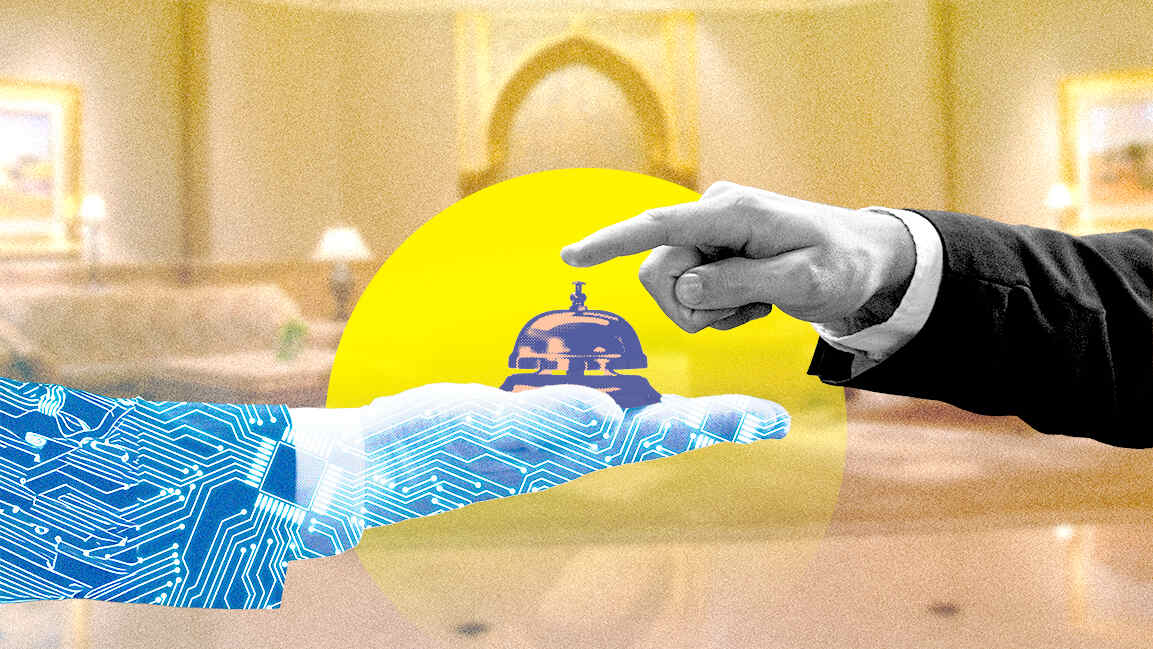- | 9:00 am
In a digital Middle East, the culture of care is still a human ambition
Across the hospitality sector, leaders agree that a unified culture of care doesn’t mean uniformity.

In an era dominated by AI-powered personalization and automation, the hospitality industry, from multi-property to regional operators, faces the challenge of delivering exceptional service and embedding a culture of care that resonates across cities and cultures.
From luxury resorts and airport lounges to heritage-rich destinations and fast-evolving urban hubs, there’s a renewed vigor to redefine hospitality and bring in the human touch.
It begins with people and the values they embody at every touchpoint. Marco S. Rentsch, Partner at PwC Middle East, emphasizes that “meeting evolving guest expectations and generational shifts requires a service model that is intuitive and grounded in emotional intelligence, not rigid SOPs.”
While consistency has its place, he explains, “true luxury lies in hyper-personalizing the approach—considering demographics, behaviors, and emotional cues in real time to deliver authentic, unobtrusive moments that leave a lasting impression.”
Pranav Vohra, Cluster Commercial Director at IHG Hotels at Dubai Festival City, says that in an environment where luxury is expected, “what truly differentiates is emotional intelligence.” His teams are trained to anticipate unspoken needs and personalize experiences with intent.
“From pre-arrival engagement to post-stay memory-building, our focus is on creating moments of unexpected kindness—moments no algorithm can replicate.”
AUTHENTICITY THROUGH COMMUNITY
At AlUla, Executive Director of Marketing Melanie de Souza says its development strategy is “community-first, grounded in sustainability and shaped by a 60,000-strong local population.”
Guests are increasingly seeking meaningful interactions, and AlUla delivers this through local storytellers—known as rawis—who guide visitors through heritage sites with deeply personal, generational insight.
“We’ve created scholarships, revived ancient crafts, and helped women launch small businesses,” de Souza says, noting initiatives like Madrasat Addeera in the Al Jadidah Arts District. “We want to ensure the culture of care is reflected not just in guest experience but in how we protect our heritage, support our community, and regenerate the natural environment.”
UNIFYING CULTURE WITHOUT ERASING LOCAL IDENTITY
Across the hospitality sector, leaders agree: a unified culture of care doesn’t mean uniformity. Guillermo Carlos Salvatori, Cluster GM for Mövenpick JLT, voco Bonnington, and RIVA Beach Club, highlights the importance of immersing oneself in each brand’s unique DNA. “Every brand has a distinct identity shaped by values, market positioning, and guest expectations,” he says. “Adapting to those differences without compromising leadership values has been key to driving success.”
Vohra says the brand encourages its teams to “express individuality while anchoring in a shared service philosophy.” The goal, he says, is not sameness, but “shared purpose delivered with local authenticity.”
TECH AS A TOOL, NOT A REPLACEMENT
As the hospitality industry digitalizes, can technology deepen human connection, or does it dilute it? Jaffar Dawood, Senior Vice President for UAE Airport Operations at dnata, says, “Data and AI must augment the emotional warmth that defines great service.”
He believes “the future lies in harmonizing intelligence and instinct.”
Rentsch echoes this, noting that “back-of-house systems like cognitive buildings and real-time data platforms enable staff to focus less on logistics and more on meaningful engagement.”
Front-of-house, tools like mobile check-in and digital messaging “support convenience, but they don’t replace the human agent who remembers a name or offers comfort during a delay.”
Dawood adds that this fusion of technology and human warmth defines “next-generation hospitality,” where “guests expect app-based journeys, but are surprised and delighted when a marhaba agent remembers their name or offers help during a stressful moment.”
MEASURING WHAT YOU CAN’T ALWAYS SEE
In a data-driven world, measuring human connection can feel elusive—but it’s not impossible. Dawood shares that while marhaba tracks performance using CSAT and NPS, “we place particular emphasis on free-form, emotive feedback—online reviews, spontaneous praise, and open-text comments.” These narratives offer insights into how guests feel, not just their rating. “Metrics are part of the picture,” he adds, “but stories—and the feelings they carry—are what guide us.”
At AlUla, the team’s internal mantra is shaped by its global brand campaign, Forever Revitalising. De Souza explains:“That wasn’t just a brand promise to customers—it was a rally cry for staff. Every day we’re reminded of our purpose: to preserve heritage, restore the environment, and uplift the community.”
SUSTAINABILITY IS THE NEW LUXURY
Modern guests expect more than pampering—they want purpose. Sustainability and social responsibility have become essential to any true culture of care.
Salvatori believes sustainability must be humanized—seen not just as environmental action, but as social investment. “Travelers are increasingly drawn to hotels that champion ethical employment, diversity, and community support,” he explains. “Our goal is to create a hospitality experience that resonates with conscious travelers and contributes to a more sustainable future.”
De Souza underscores that “every partner in AlUla is selected based on shared values.” She notes, “Even the fabrics used in our hotels’ upholstery reflect our commitment to conscious design. This is about telling an authentic story—about the land, the people, and our values.”
In the hospitality industry, every property has beds, lobbies, and restaurants. What makes one unforgettable is how it makes you feel.
Whether through the eyes of a marhaba agent at the gate, a local artisan in AlUla, or a concierge in Dubai, care isn’t just good business—it’s the brand itself. It’s the competitive advantage you can’t copy. It’s not stored in your CRM. It’s lived every day.







































